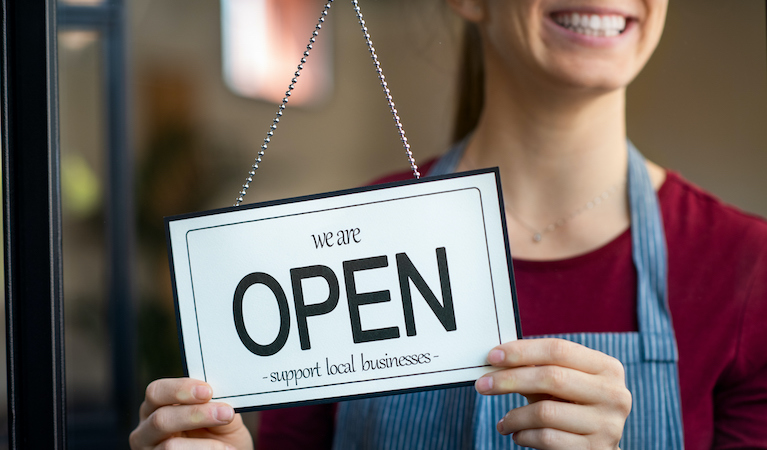We’ll never ask you to pay us a fee before disbursing your loan. If affected, please contact us & learn more here.
Late repayment can cause you serious money problems. For independent help, please go to www.moneyhelper.org.uk

May 20, 2021
Have you ever sat there watching Dragon’s Den and wondering what it would be like to start your own business?
Just think of the advantages that there could be for working for yourself. You’d be your own boss, able to choose your own direction, work your own hours and, above all, follow your dream.
On the other hand, there would be no more security of a regular pay packet or employment benefits, and no taking time off – certainly in the early days. Everything would revolve around you. And what about the risks? What would you do if the business failed? Would you lose all your money?
In this article we take a quick look at how you could go about starting your own business, and what help is available, both practical and financial.
Ok so you have a wonderful idea for a brand new business. Let’s look at three things you need to do before you get started.
Your idea might sound brilliant to you but you need to be sure that it is workable in real life. You also need to find out whether there is actually any demand for your product or service, and whether there are other businesses already providing the same kind of thing. If so, these businesses will be your competition, so if your business goes ahead you will need to find ways of being better than them.
So search on Google, ask everyone you know, look at relevant business journals and magazines to try and find out where things are at with your idea.
Another good way to find if your idea could work is to trial it. There are various ways you can do this, including:
At the same time as doing the above it is a good idea to start saving some money as your emergency fund. In the early days of your business you may not be able to pay yourself a full salary and will need something to fall back on.
If you decide to go ahead you can set up your business in one of three ways:
This is the simplest way to set up a business. As a sole trader, you are self-employed and run your own business as an individual. You will need to set up as a sole trader if you earn more than £1000 in a tax year.
You will need to register with HMRC as self-employed, and complete an annual tax return. You do not need to register with Companies House.
As a sole trader you keep any net profit (i.e. after tax) that your business makes, but are also personally responsible for covering any losses that your business makes.
You can read more on the Gov UK website about how to set up as a sole trader.
A limited company is a company in which the company finances are completely separate from your personal finances. The company can be limited either by shares or by guarantee.
There are various formalities to go through when setting up a limited company, and you will need to register your business with Companies House.
You can read more about setting up a limited company on the Gov UK website.
A partnership is a way for two or more parties to run a business together. The parties can either be individuals or limited companies.
In a partnership, the partners share responsibility for the accounts, tax, profits and debts of the business.
You can read more on the Gov UK website about setting up a partnership.
There are various government schemes that offer help and support to new businesses.
There are also various sources of practical help available for new and small businesses. A selection of these are:
We hope that the above information gives you an idea of what you would have to do if you want to start a new business, and where you could get help.
If you need additional short term funding at any stage of the process, remember that Loans 2 Go offer online personal loans that may be able to help.
Check back here soon for more lifestyle and financial tips from Loans 2 Go.